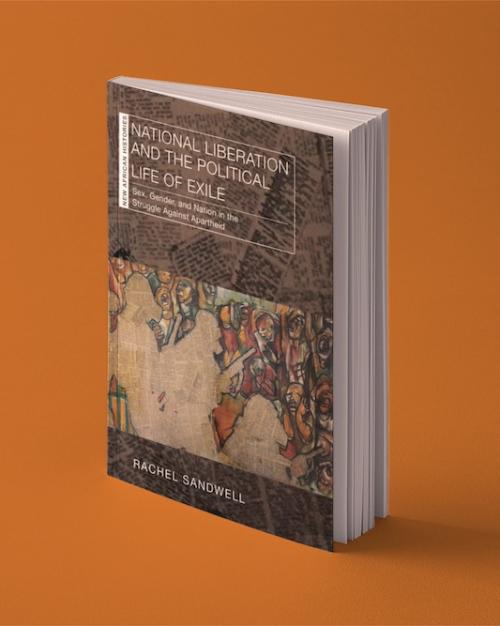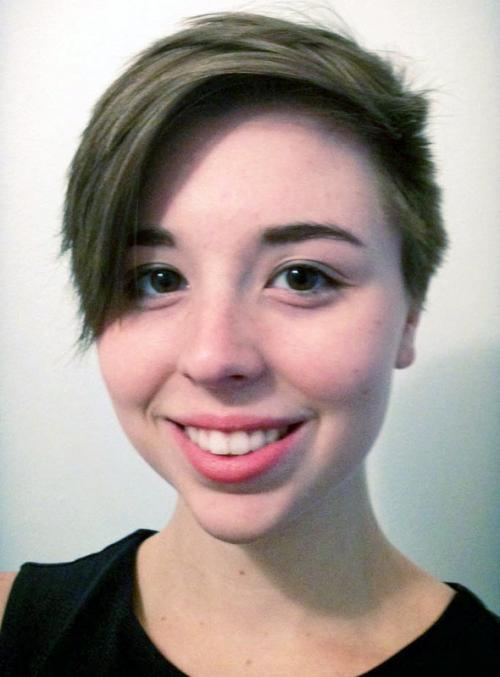Danielle Burgess '15
Major: Linguistics
Hometown: Horseheads, NY
Why did you choose Cornell?
I attended the Cornell Summer College program after my junior year of high school and experiencing the beautiful campus that summer, along with meeting so many thoughtful and ambitious peers and faculty, really solidified in my mind that Cornell would be a great place for me.
What is your main Cornell extracurricular activity -- why is it important to you?
This year I was president of the Cornell Undergraduate Linguistics Club (we call ourselves the UnderLings) which organizes monthly brunches with linguistics faculty and hosts an undergraduate linguistics research colloquium every Spring. The Linguistics Department here is very small and it is very rewarding to contribute towards making the close-knit environment that makes the department so special, where students feel comfortable talking to their professors and TAs and the faculty know what their students' hobbies and interests are outside of class.
What was your most profound turning point while at Cornell?
During my junior year, I decided to stop pursuing a double major in English (sorry, English...) so that I could take a broader range of classes within my interests. It was a difficult decision, because I genuinely enjoy reading and analyzing texts, and pondering deeply human questions, but I think being able to explore a greater variety of classes during my time here was overall more beneficial to me. I still got to take English courses I was deeply interested in, but I was also able to discover a late love for computer science and take a fun Welsh course on a whim.
What accomplishments/activities are you most proud of while at Cornell?
I am very proud of my senior honors thesis, where I researched the historical development of two constructions, copy tag questions and copy answers, which exist in English, but are rare in other Germanic languages. Working on a large research project of my own has been challenging, but has given me confidence in my analytical abilities in a way that I wouldn't have discovered otherwise.
What, if any, research projects did you participate in at Cornell?
In addition to writing a senior honors thesis, I have also worked as a research assistant for Professor Sam Tilsen in the Cornell Phonetics Lab doing experimental work, and as a research assistant for Professor Draga Zec, where I helped research the phonology and syllable structure of over 100 world languages.
What Cornell memory do you treasure the most?
I can't identify one specific memory that I treasure most, but all of my best Cornell memories involve the family-away-from-home that I was lucky enough to have during my time here. I am so happy to have found such a supportive group of friends here, with such diverse interests.
Who or what influenced your Cornell education the most? How or why?
My advisors, Wayne Harbert and Abby Cohn, among many other linguistics professors that I have had during my time at Cornell, have been incredible mentors in my academic pursuits. I am very grateful that the relatively small size of the Linguistics Department and the care that all of the Linguistics faculty show for their students have allowed me to have something of a small school experience within the large Cornell setting.
Additionally, my Cornell experience would not have been the same without the close group of friends I made here, who have allowed me to maintain a healthy work-life balance. It is all too easy for me to become consumed with stress over "the little things" and they have helped me keep things in perspective and have always given me something to laugh about.
How did any of your beliefs or interests change during your time at Cornell?
It is inevitable, in such an intellectually active and curious environment as Cornell, that my beliefs and interests were strengthened, broadened, and deepened in my time here. I have accumulated the tools and skills to better argue for and support my beliefs, while gaining to humility to listen to really listen to and consider alternative views. For example, I have always considered myself a feminist, since I first heard the term, but through conversations I have had or have seen develop between other Cornell students online or in Daily Sun articles, I feel far more confident in my ability to discuss gender politics now than I did as a freshman.
My interests have also certainly developed and expanded - I didn't even know what linguistics was before going to Cornell, let alone that I wanted to major in it. I am happy that I was able and encouraged to take classes in diverse subjects I never expected to take.
What do you value about your liberal arts education?
I think the most valuable part of my liberal arts education is that it has not only influenced my thinking, but my meta-thinking - the ability to analyze and evaluate how and why I am approaching a problem or idea in a certain way, and to constantly regulate my thinking accordingly.




